A Teacher's Confession
Broken by the autocratic regime of public education, a teacher tells the story of his fall, path to redemption, and penance.
I come to you penitent and ready to confess my sins so that I may receive absolution. Bestow wisdom upon me, Socrates- father of teaching and upholder of truth- for I have sinned against the Western ideals of truth, reason, and learning; a broken spirit, the price I paid. This is my first confession and I am prepared to undertake penance for the remittance of sin. As you stood on trial in valiant defiance, I pray that I possess the same courage. If an offering of hemlock is my shared fate, may it inspire those of my ilk to undertake this resistance, for our civilization’s future is contingent upon this fight.
Confession
For much of my eleven years in public education I have been derelict in my duty; an oathbreaker of unspoken vows. Where Western civilization bestowed upon me the values of reason, truth, and education, I served false gods in their place. The price I have paid for my misplaced faith is a heavy one, but it is mine to bear as a consequence of my cowardice. As I have rediscover the values that transcend contemporary politics, I pray for the strength to endure the wrath of the high priests of the Church of Woke, for this penance demands defiant heresy against my former masters.
When the state granted me the title of teacher, I believed in the institution of public education. This is not to say that I had completely forsaken the values in my heart, but my infatuation and commitment to the fantasy of schools as progressive beacons of hope betrayed these values. As all men do, I wrestled with doing what was right by virtue and what was expedient. As all sinners do, I made a choice. As all that dwell in perpetual suffering do, I abdicated ownership of my actions. Yet, as all who have found redemption and renewal do, I confess and confront the consequences of my sins and penance.
The Early Years
The idealistic naivete of youth betrayed me when the realities of public education were revealed: bureaucracy, corruption, and collective apathy. This was a betrayal of what progressive education was supposed to be. I was filled with righteous indignation and I committed to rising above a culture of indifference. My mission was to help the institution live up to its progressive ideals whatever the cost. As such, I openly disregarded the Draconian rules and procedures that shackled teachers and students to mediocrity and made it a point to verbalize my defiance. When my superiors and colleagues objected, I would chastise and remind them of our purpose: to uplift the downtrodden masses. For a time I believed I could awaken others to do the same, though I was blind to how institutionalization had plundered their souls of morality. In time, I would suffer the same fate.
Given the zealotry with which I pursued this mission, my early years in public education were not kind to me. However, I was not the only one who suffered. I witnessed many good souls break under the autocratic weight of the bureaucracy. I watched students- forced into a deteriorating buildings with substandard resources- emanate hate. I witnessed new teachers- filled with vibrance and enthusiasm- end their days in tears. I observed security guards- forced to uphold the Byzantine rules that maintained control- reluctantly execute their authority. We were all victims and participants in holding up a terrible and dehumanizing system. My own feelings towards my colleagues alternated between self-righteous blame and empathy. More frequently it was the latter as I felt the pull of gravity strip me of my passions and ideals.
High Priests
In the principles of my progressivism, the administration likely agreed with me. But school is a church and preservation of theocratic power takes precedence over purity of faith. The appearance that the institution was functional and successful mattered far more than whether it was. Actions and voices that threatened the church, even if theologically pure, were forbidden. It was this attitude amidst mediocrity that was the source of my anger. The public schooling model is an autocratic hierarchy in which power is placed within the hands of high priests who have the power and ability to lead, model, and inspire. What do they do with their sacred post? Maintain the status quo. Cowards, they serve but one master: the institution.
It is beyond the “students first” pomp and pageantry of public education that one learns it is the institution, not children, that comes first. It is an entity that is first and foremost concerned with its existence and survival ; children are an afterthought. I still hold that administrators bear the most culpability for a school’s dismal state of affairs, but that requires courage. If they do not possess that courage, the oness is on teachers to pressure them to fulfill their responsibilities, but that too requires courage. Like all autocratic regimes, she is as frightened as those she frightens. It is an empire of lies that operates on collective fear. The message is undeniable: if you fear, then be silent,and you can remain in her employ.
Thirty Pieces of Silver
I spent many nights asking myself why I could not simply profess faith in my school and collect a paycheck in peace. After all, there were a minority of teachers who were able to survive the system. They made peace with their condition and relegated themselves to their classrooms. When their survival demanded it, they would participate in the charade and uphold the tenets of faith. They justified maintaining the farce by focusing on the good they could do in their classrooms. I tried to do the same, but it was antithetical to my nature. To this day, I am an unsettler. Where complacency and cooperation promise peace, I resist. I simply could not resign myself to a life of false-hearted homage to the gods of public education, even if it meant I could continue to do what I love and achieve some measure of goodness. To do so would be to give nominal allegiance to my values.
In time, I discovered the limits of my resolve and the price for my soul. While I received accolades for my work in the classroom, my distinctions were not sufficient to shield me forever. Remember, the institution extolls professions of faith, but when she is threatened, she is merciless. In the end, it was an administrative “talk” where I would make my choice. In no uncertain terms, I was told that I could continue my problematic mission until I was jobless or I could submit and serve in peace. Fear had found me, and for “thirty pieces of silver” I chose to betray what I stood for.
Broken
I remember leaving this administrative meeting- which they always tell you are just “conversations for reflection”- on the verge of tears. I had submitted in word and spirit out of fear. I bent the knee, and I knew what that meant: joining the ranks of the spiritually shattered and discontent. Another sad face feigning happiness living weekend to weekend. I would become obedient and compliant and learn that there are some things worse than unemployment.
The faith demanded of teachers is one of empty and symbolic tokens. One long rite of hollow words and obligatory gestures becomes part of public education’s smoke and mirrors. While I taught as best I could, kneeled when required, and deferred to the almighty “wisdom” of my superiors, in my heart I loathed what I had become. And so, my spirit was broken; the price paid and deserved for my self-interested decision. I had become what I had once criticized, and my self-loathing grew into self-hatred. I was a shell of my former self. No longer a teacher, but a bureaucrat occupying the ninth circle of civic hell.
The soul and body are intimately connected, and when one goes, so too does the other. My spiritual sickness began to manifest in all manner of ways physically. I was frequently sick, my weight soared, and my doctor pleaded with me to consider the toll this job was taking on my health. Yet, I could not find the will to break free from these self-imposed chains. I continued at peril because I could not see beyond my current condition. I soon embraced the shadow I had become and drowned my suffering in vice. Every day was an exercise in psychological endurance, and each night I would lose myself in a cloud of smoke and prescription medication, if only to forget for a short while. There was only darkness, and I cared little for anything. For what are the fruits of life to a compromised soul?
From China,With Love
Then the pandemic hit, and for the first time in years, I was free from the insufferable burden of the daily act. I no longer had to feign care and love for the institution, but I knew this was only a temporary reprise. Nightmares of returning to what I had left plagued my sleep, and so I continued on my path of self-destruction. Intoxication was how I numbed my repressed spirit; it insulated me further suffering and allowed me to endure. Yet how long can a man call this existence a life? It was this question that gnawed at my soul; becoming an impetus for change.
As the pandemic progressed, and weeks away from school became months, I was forced to face myself. The chaotic environment of my school could no longer distract me from the self-reflection I so desperately needed. I came to realize that my apathy was a condition borne of my privilege. As Americans suffered joblessness and despair, I collected a paycheck. One “earned” for the mere supervision of students working behind a screen.
I thought about all the people facing economic uncertainty as businesses continued to be shuttered. They found the will to persist, and here I was- like so many other teachers-going through the motions to collect a paycheck. Was this all it took for this terrible institution to persist? Was the survival of this defunct institution contingent upon a series of consistent paychecks?
What would it take for me, among others, to relinquish subservience to a government stipend? The answer to this question, for me, would be the final and greatest perversion of public education I would witness. When she utterly and completely abdicated any responsibility to the ideals for which she supposedly stood. The infiltration of ideological instruction and political activism into her halls would be the last mockery of education I could tolerate.
Martyrdom
It would be George Floyd’s murder at the hands of Derek Chauvin that would be the death knell of what remained of public education’s nominal commitment to reason and impartiality. Like most Americans, the image of Floyd dying with a knee weighing upon him angered me. Where I differed was in the relief I felt over the swiftness with which our justice system had acted. I was not naive to the historical font of anger that flowed in response to what we all witnessed, but I presumed that the expedience in which our justice system had responded would herald a reminder that things had changed. I still had some measure of faith that the American people would demonstrate the better angels of their nature as the wheels of justice turned. This faith was scorned by the fires of vengeance, which illuminated the nighttime sky as the opportunists among us used the cover of darkness to sow chaos and bring their fantasies of revolution closer to fruition.
Was the anger over Floyd’s death a legitimate emotional response to an emotionally traumatic event? Yes. However, I was not blind to the machinations of political forces that seized upon an opportunity in this tragedy. The fledgling Church of Woke, which had struggled to become mainstream, now had a martyr. One that they would use to proselytize a narrative and divisive theology of revolution amongst the hordes of pandemic-disaffected Americans. Their faith spread faster than the fires burning across America, and I watched reason give way to madness amidst this “Great Awokening.”
As a historian, I was a powerless observer of what was to come. I knew this was not a transient movement but the emergence of a new faith and that the chaos engulfing our nation was not an anomaly, but a violent preview of what was to come.
When the violent and bloodthirsty mobs clamoring for revolution used Floyd’s death to foment an ideological uprising, my immediate economic livelihood became trivial. What of the future of the Republic that my son and his generation would inherit? Many of my peers told me I was being reactionary. Violence was just, they argued. One should abide by the righteous flames of anger as a blood price for historical injustices, they explained.
Once again, I was tasked with choosing between silence and speech. This time, however, I knew that my silence would not buy me long-term quarters in safety. For they would eventually come for all unbelievers.
Church and State
Any reservations I harbored about the course of our nation’s future were dispelled when I witnessed my school pledge allegiance to the Church of Woke. She was no longer an ideological adherent of the faith, but an active proselytizer. Nowhere was this more evident than in the newly established Department of Equity and Inclusion.
It should have been no surprise that schools- disingenuous institutions that they are- would capitalize on the fashionable politics of the day. This was another example of her insisting upon contemporary relevance in spite of her academic failures. However, unlike her previous transient flirtations with the politics of the day, this wholesale embrace of the New Orthodoxy would give birth to generations that would usher in the Woke’s empty and Orwellian future.
In service to the Church of Woke, the ranks of teachers- and in recent weeks their unions- bowed down in reverence. The ideological capture was complete. What little reason and enlightenment survived the predominant ideology of public education had been erased. This was most evident in teachers: progressives served with renewed purpose, the apolitical had converted, and the heterodox grew silent.
Looking back, I now see the predictability of the unholy transfiguration of education into inculcation. Schools had always contained elements of radicalism amongst staff; all it needed was a national catalyst to increase in speed and zealotry.
As a teacher, I now had to contend with an entirely new act: that of a missionary of the faith. For I knew that when schools reopened we would be expected to convert our pupils to the Church of Woke. The events of the past few week have not proven me wrong. Only one year later have we seen the faith become institutionalized in pedagogy and curriculum.
Penance
I believe in redemption, and a confession without such is virtueless. I see two paths before me: the one I had walked before- albeit with new ideological mandates- and one where I resign from my post. But for how long can I run? At what point will the generations of children indoctrinated under this New Orthodoxy form a new and unquestionable consensus? When will I find myself surrounded by a society intent on dismantling the very fabric of our existence? When will the blood-red graffiti-cry of “REVOLUTION!” capitulate into blood-tinged streets of a rebellion? No, there is a third path, one of sacrificial penance. This is not a path of compliance or abdication, but one of defiant opposition to the educational theocracy.
Before I became a teacher and bought into the expected progressive politics, I held a more pure vision of a teacher’s purpose: to enkindle in their pupils the sacred flames of truth, reason, and learning. The ideals originating in Ancient Greece and carried forth into the Western Enlightenment. Instruction that preserves and builds upon our most outstanding achievements is what teachers are called upon to do, not to fuel the flames of division and wrath that ignite the pyres of America! Out of urgent necessity, my deepest calling has been reawakened. And so I say to myself, “never again will I be afraid to speak, for the price of silence is far greater than the price of defiance.”
A Just Cause
My penance is to do what is right. For the first time in as long as I can remember, it is not for my survival, but that of others. I will not slouch and shirk the responsibility entrusted to teachers, but reclaim it and fight for it. It is a dangerous fight, but one that is worth it.
While the institution of public education may not be worth fighting for, the ideals of a classical Western education are. For they are rooted in reason and enlightenment; that which given birth to the greatest society our world has ever known. But the spirit of Westernism is fragile, and it only lives in the vanguards willing to protect it.
Perhaps, my choice is not difficult, but the easiest one I have ever made. Facing the possibility of the dissolution of our great country and the suffering that would be wrought from such social division, do any of us really have a choice? How can we weigh the risks of being outspoken against the dangers inherent in our silence? And so I call to you, those also silent, perhaps living in the shadow of fear, to join me. Though our numbers are few, maybe we vanguards of liberty and the Western spirit can inspire more to our cause. Perhaps, there is hope that if enough of us find the courage to do what is right, we can survive the angry gods summoned by this New Orthodoxy, the Church of Woke.





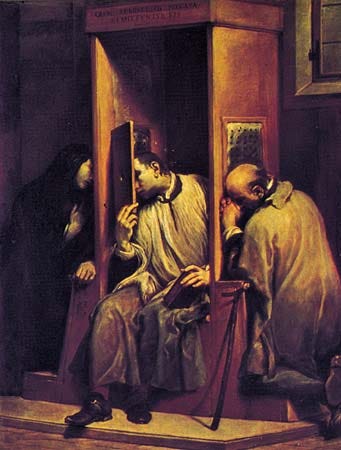
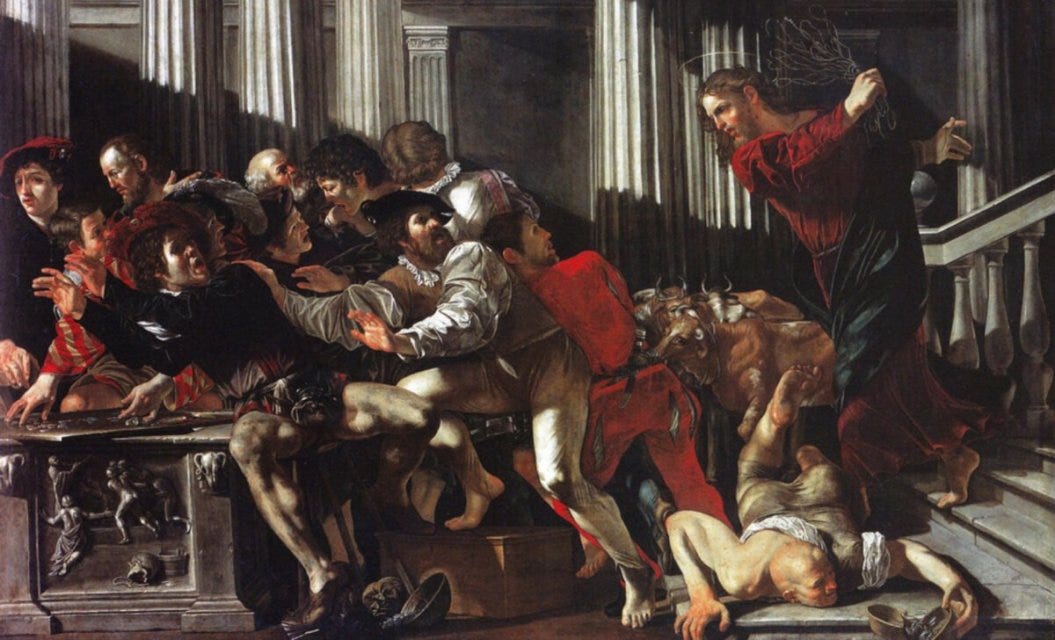
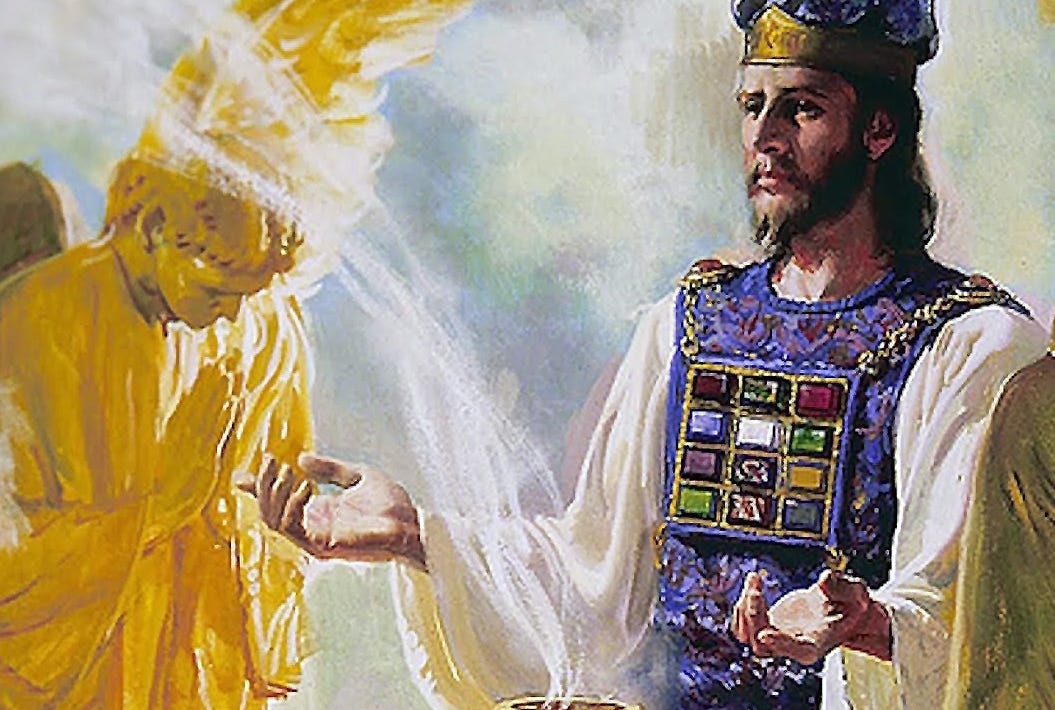





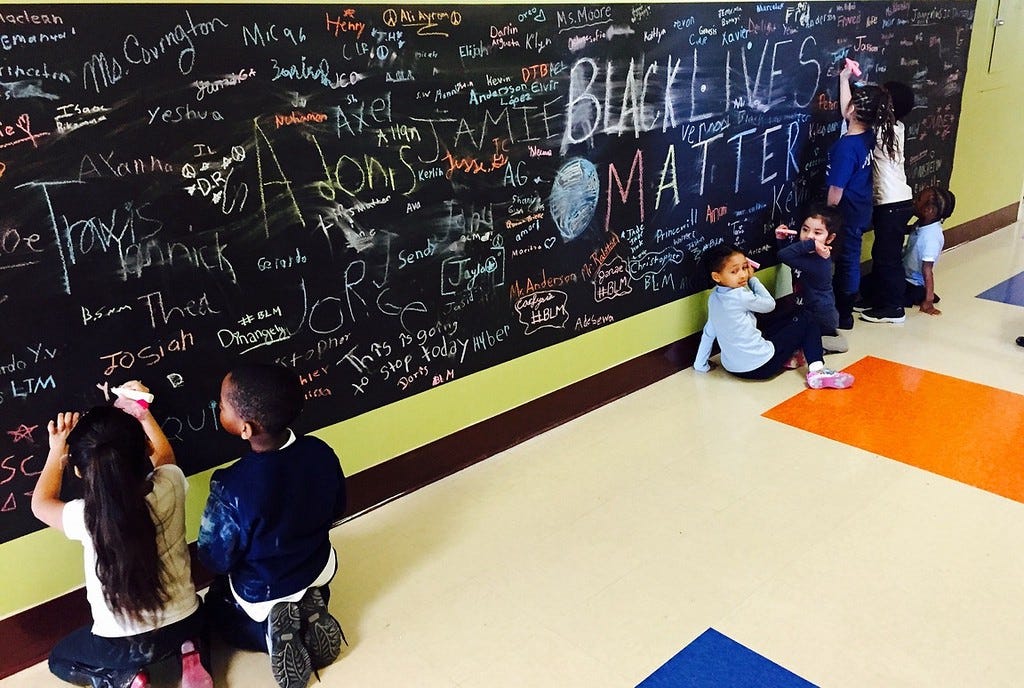


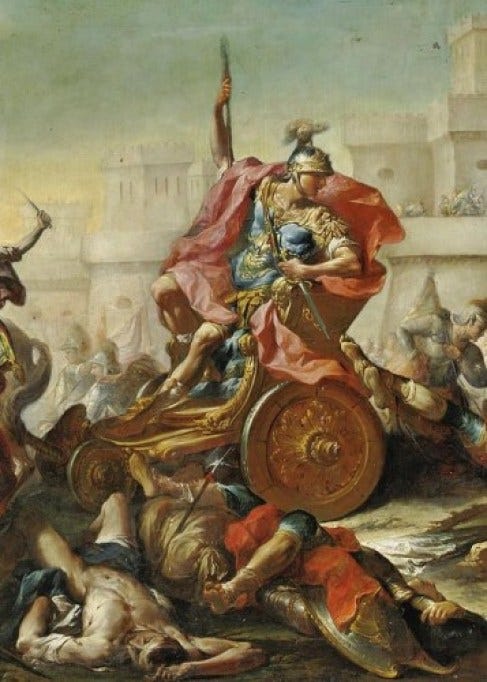
Thanks for your honesty.